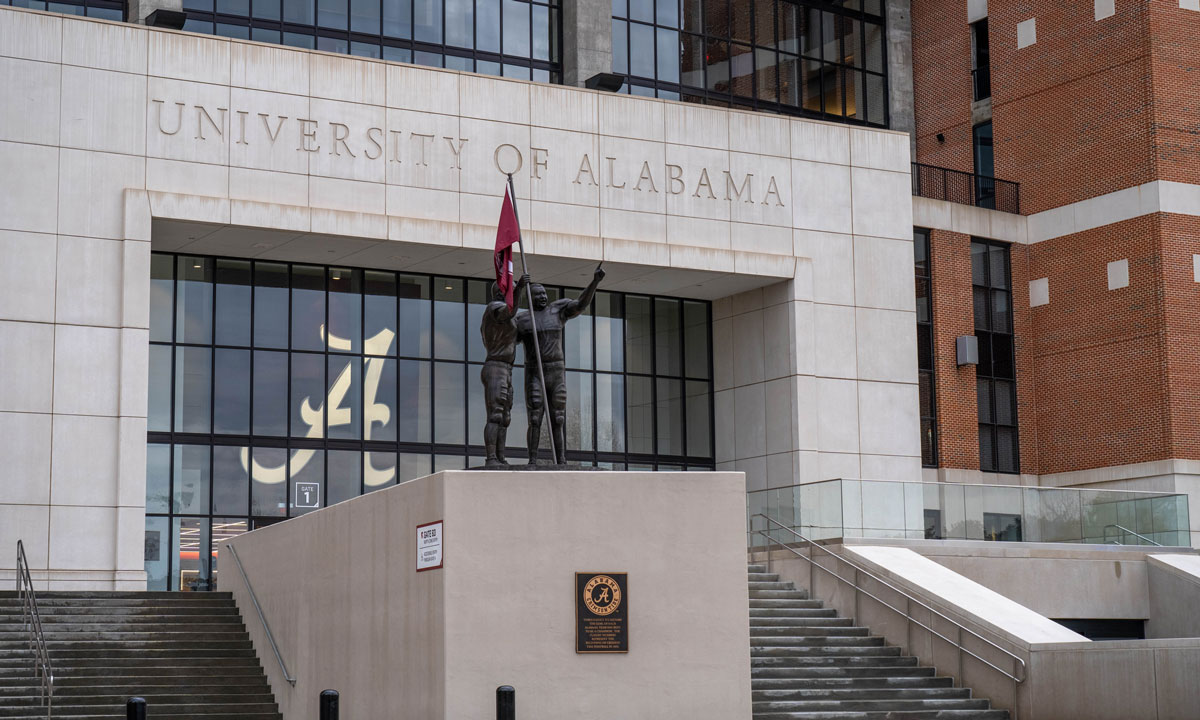New Federal Rules on Distance Learning Leave Some Higher Ed Officials Scrambling
New requirements from U.S. Department of Education require more documentation, faster placement.

Get stories like this delivered straight to your inbox. Sign up for The 74 Newsletter
The Alabama State Reciprocity Committee Wednesday discussed the potential impact of changes to federal regulations on distance learning.
The committee, which focuses on higher education issues, works to address State Authorization Reciprocity Agreements (SARA) in Alabama. SARA was established in 2013 to streamline regulations from the U.S. Department of Education around distance learning opportunities. The committee has representatives from two-year colleges, four-year colleges and Historically Black Colleges and Universities.
The focus of Wednesday’s discussions were changes made to increase federal oversight over higher education institutions.
The changes were made under the negotiated rulemaking process, where representatives of parties significantly impacted by changes to higher education work with the Department of Education to reach consensus with the Department.
Regulations will go into effect on July 1.
Heather Hall, dean of the college of nursing at University of South Alabama, said that placements for clinical work now need to be made within 45 days and within a reasonable distance. She said that these requirements may be more complicated for more specialized fields.
“So if there’s not a NICU located within that reasonable located geographical area, then that would be okay, because it’s so specialized,” she said. “However, that can only be used a certain length of time,” Hall said. “You run out of reasons why you’re sending students so far from one state to the next or across the state to clinical placement.”
The Department of Education says these requirements will not apply to post-graduation requirements, such as medical residences.
Hall said that increased reporting requirements that keep track of placements means that they will need more staff. She also said that a student turning down a placement does not mean that a school is freed from the 45-day requirement.
“Everything has to be documented,” she said. “Everything has to be in compliance, and we have to start moving quickly to make sure that our students are placed.”
Tonjanita Johnson, senior vice chancellor for academic and student affairs for the University of Alabama System, said she’s heard from staff that they would like a centralized system to maintain the required information.
“Understanding the resources that may be needed would be helpful for I’m sure for just more than those of us sitting around the table,” she said.
Ron Leonard, director of special operations at the Alabama Commission on Higher Education, said that if they join the State Authorization Network, he thinks the organization will help the colleges keep up with changes to federal regulations.
“They’re at the forefront of keeping up with federal and state regulations,” he said. “As was mentioned earlier, there is so much coming down the pike, that it’s hard for people to keep up.”
The State Authorization Network provides training, support and opportunities to help institutions to work together to navigate regulatory requirements for out-of-state activities, according to their website.
Leonard said they have applied for a grant for membership. If only a small number of institutions want to join, they can likely cover the cost. If all institutions want to join, there would be a cost but it would be discounted. He said that some institutions in the state have already joined.
Alabama Reflector is part of States Newsroom, a network of news bureaus supported by grants and a coalition of donors as a 501c(3) public charity. Alabama Reflector maintains editorial independence. Contact Editor Brian Lyman for questions: [email protected]. Follow Alabama Reflector on Facebook and Twitter.
Get stories like these delivered straight to your inbox. Sign up for The 74 Newsletter

;)